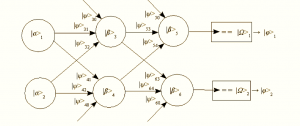 Human hearing is limited in the range of frequencies that we can discern. Generally, at the high end, that limit is around 20kHz, which is a very high pitch indeed. But, as we age, our high frequency perception reduces as well, until we may very well have difficulty hearing 8kHz or understanding human utterances in old age. You can test your own approximate limits with a simple YouTube video that raises pitches quickly up through the spectrum. I’m capping out at just north of 13.5kHz using a cheap speaker attached to my monitor, and with normal but quiet ambient background noise.
Human hearing is limited in the range of frequencies that we can discern. Generally, at the high end, that limit is around 20kHz, which is a very high pitch indeed. But, as we age, our high frequency perception reduces as well, until we may very well have difficulty hearing 8kHz or understanding human utterances in old age. You can test your own approximate limits with a simple YouTube video that raises pitches quickly up through the spectrum. I’m capping out at just north of 13.5kHz using a cheap speaker attached to my monitor, and with normal but quiet ambient background noise.
The original design of the Compact Disc by Phillips and Sony used the 20kHz limit as guidance for the encoding of the digital information on the disks. Specifically, the input analog waveform was sampled at a resolution of 16 bits 44.1kHz, which gives a maximum volume range of 2^16 (96dB) and supports the Nyquist sampling theorem that requires double the maximum frequency of the input stream in order to reconstruct that stream.
And CDs were very good, exceeding the capabilities of vinyl or cassettes, and approaching the best magnetic tape capabilities of the time. They also had some interesting side-effects in terms of mastering by freeing bass frequencies that had to be shifted towards the central channel on vinyl in order to avoid shortening recordings unduly because of the larger groove sizes needed to render low frequencies.
But now, with streaming, we can increase our resolution still further. Qobuz and Tidal offer Hi-Res audio formats that can range up to 24 bit resolution at 192kHz sample rates. Tidal also promotes MQA (Master Quality Authenticated) format that may use lossy compression but preserves aspects of the original master recording.… Read the rest




